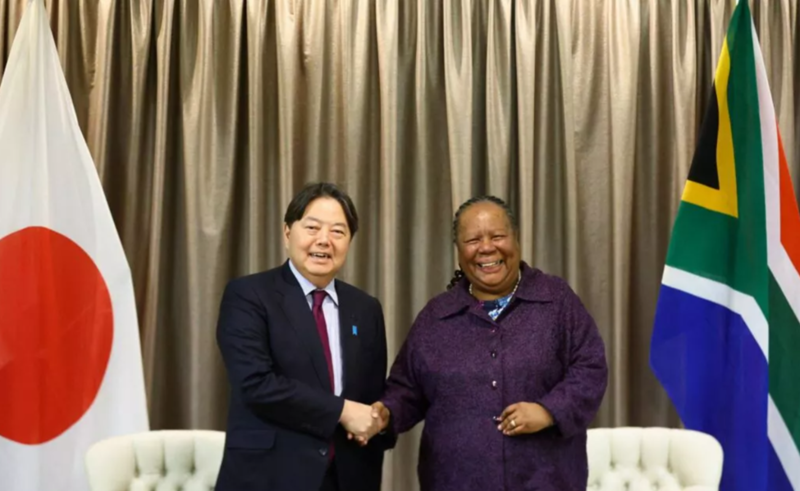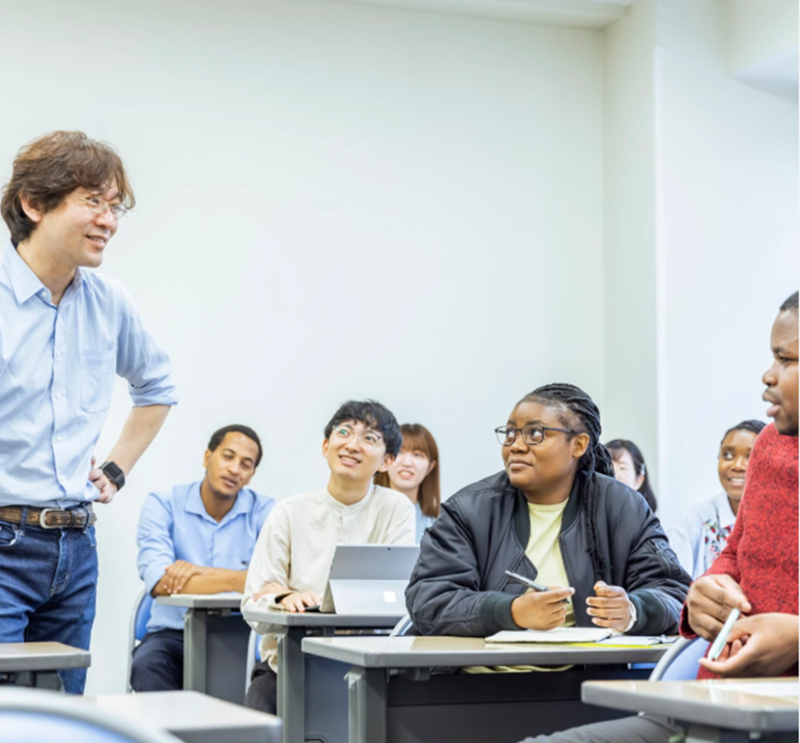The Transformative Effects of Japan's Expanding Academic Ties with Africa: Bridging Continents
Input
Modified
A New Era of Collaboration: Japan's Academic Outreach to Africa Overcoming Obstacles: Cultural Distinction, Language Barriers, and Financial Limitations Japan's Global Influence and the Impact on Africa's Development

A New Era of Collaboration: Japan's Academic Outreach to Africa
Education has emerged as a critical bridge between nations as globalization continues to shape the globe. This changing global dynamic is exemplified by the academic partnership between Japan and Africa. Through institutional partnerships, research collaborations, and scholarship programs, Japan has been enhancing its academic engagement with African nations over the past decade. This strategic partnership guarantees mutual advantages, such as the cultivation of human capital, technological advancements, and strengthened diplomatic relationships. The impact on Africa's socio-economic development and Japan's global influence is becoming more significant as Japan expands its educational outreach.
Japan's educational engagement in Africa is not a recent development. Nevertheless, its strategic significance and scope have expanded in recent years. Japan's engagement with the continent was established by the Tokyo International Conference on African Development (TICAD), which was initiated in 1993. TICAD has established a forum for the discussion of Africa's development requirements, which encompass education, research, and skill development.
The "Study in Japan for Africa" program is a noteworthy initiative within this broader framework. Its objective is to significantly increase the number of African students enrolled in Japanese universities. Japan has exhibited global leadership in the disciplines of Science, Technology, Engineering, and Mathematics (STEM) education, which are the primary focus of the initiative. The program's objective is to cultivate a new generation of African professionals who are endowed with world-class expertise by increasing the number of African students enrolled in Japanese institutions from 1,994 in early 2025 to 2,500 by 2028.
Institutional collaborations have also intensified, in addition to scholarships. In late 2024, Hiroshima University and the Pan African University (PAU) executed an unprecedented agreement to establish collaborative research programs, support student exchanges, and grant African scholars access to advanced research facilities in Japan. The University of Tokyo has entered into comparable agreements with prominent African institutions, with an emphasis on collaborative research in public health, environmental science, and artificial intelligence.
The South Africa-Japan University (SAJU) Forum is another significant component of Japan's engagement with Africa. It has been instrumental in the development of intercontinental academic relationships. Japan's dedication to higher education cooperation was reaffirmed at the fifth SAJU Forum conference in 2022, which underscored the significance of academic exchanges in confronting Africa's urgent challenges, including digital transformation and climate change.

Overcoming Obstacles: Cultural Distinction, Language Barriers, and Financial Limitations
Challenges persist in spite of the increasing number of African pupils who are pursuing higher education in Japan. The linguistic barrier is one of the most formidable obstacles. Despite the fact that an increasing number of programs are now available in English, Japanese continues to be the primary language of instruction in numerous universities. This linguistic challenge can be intimidating for African students, who frequently require extensive language training to fully integrate into the academic system.
Additionally, cultural distinctions present an obstacle. The academic culture of Japan, which prioritizes discipline, precision, and hierarchical relationships between professors and students, can be in stark contrast to the more interactive and flexible learning styles prevalent in numerous African institutions. Resilience and adaptability are essential for adjusting to this new academic environment.
Another substantial impediment persists: financial constraints. Although scholarships offered by the Japanese government (MEXT) and JICA (Japan International Cooperation Agency) provide financial assistance, numerous African students continue to contend with high tuition fees for non-scholarship students, as well as expensive travel arrangements. In order to alleviate these financial burdens, certain universities are providing additional financial aid options and paid research opportunities.
The challenge of post-graduation opportunities is another issue that African students encounter. The strict employment regulations in Japan for international graduates result in a significant number of students returning to Africa after concluding their studies. Calls have been made for Japan to establish pathways for African graduates to acquire work experience in Japanese industries, particularly in disciplines such as robotics, engineering, and healthcare, where their expertise could be highly advantageous.

Japan's Global Influence and the Impact on Africa's Development
The implications of the growing academic collaboration between Japan and Africa are far-reaching. The sustainable development of Africa is one of the most significant repercussions. Japan is assisting African students in acquiring the skills required to confront critical issues such as renewable energy development, urban planning, and food security by emphasizing STEM education and technical training.
Additionally, solutions that are specifically designed to address the distinctive challenges of Africa are being developed through research partnerships between Japanese and African universities. For example, African nations are utilizing sustainable farming methods that were inspired by Japan's agricultural advancements as a result of collaborative agricultural technology research. In the same vein, Japanese-African teams are conducting environmental studies that are dedicated to the promotion of climate resilience and the prevention of desertification in regions that are susceptible to extreme weather conditions.
The expansion of academic partnerships is also consistent with Africa's overarching economic transformation strategy. The significance of education and technology in promoting economic self-sufficiency is underscored by initiatives like the African Union's Agenda 2063. Japan's contribution to this vision is especially valuable because it provides Africa with cutting-edge research and development expertise, which complements its aspirations for industrialization and digital innovation.
From Japan's standpoint, the development of academic relationships with Africa serves numerous strategic objectives. Initially, it strengthens Japan's soft power and influence in a continent that is becoming more significant in global geopolitics. Japan's educational diplomacy enables it to preserve a competitive presence in the region as other global powers, such as the United States and China, intensify their engagement with Africa.
Secondly, these partnerships offer Japan the chance to confront its demographic challenges. An influx of highly trained professionals from Africa could be advantageous for Japan, which is experiencing a shrinking workforce and an aging population. African students who have completed their education at Japanese universities could potentially contribute to industries that are experiencing labor shortages if Japan were to relax its employment restrictions for international graduates.
Additionally, these educational programs promote a more profound mutual comprehension between Japan and Africa by facilitating cross-cultural exchange. This comprehension is essential for the purpose of fostering cultural appreciation, fostering long-term diplomatic relations, and fostering additional trade and investment partnerships between the two regions.
A transformative phase in international education and diplomacy is marked by Japan's dedication to enhancing academic relationships with Africa. Japan is simultaneously enhancing its global status and influencing Africa's future through research collaborations, university partnerships, and scholarships.
The influence of these initiatives is not limited to academia; they also affect the economic, technological, and diplomatic landscapes. Japan benefits from increased diplomatic influence and potential workforce solutions, while African students are granted access to world-class education and innovative research opportunities.
The trajectory of academic relations between Japan and Africa is promising, despite the presence of challenges such as language barriers, cultural differences, and financial constraints. The potential for further collaboration in fields such as artificial intelligence, sustainable energy, and healthcare innovation is immense as both regions continue to deepen their engagement with one another.
In the end, Japan's educational outreach to Africa is more than a mere partnership; it is a bridge that unites two regions with a variety of strengths, thereby cultivating a future of mutual development, knowledge exchange, and enduring friendship. Japan and Africa can jointly confront the obstacles of the 21st century and create new opportunities for their respective populations by maintaining their investment in these academic relationships.





















